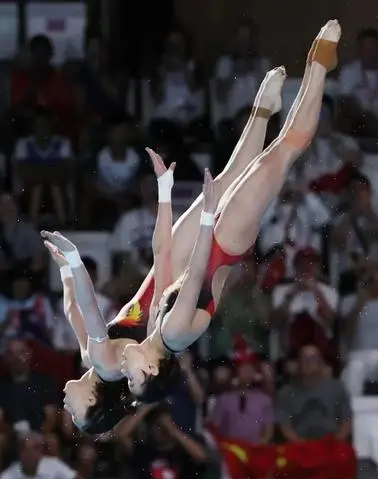NEWS
HOME/Healthy Living/DETAILS
The Nutritional “Secrets” of Olympic Athletes at the Paris Olympics

Olympic athletes achieve greatness through their sweat, and nutrition plays an equally crucial role. What do they eat every day? How does their diet differ from that of ordinary people? How can seemingly ordinary foods be scientifically combined to maximize their benefits for athletes?
To answer these questions, reporters interviewed Zhao Zhiguang, a researcher at the Institute of Sports Medicine of the General Administration of Sport of China, and Xu Baolu, the sports nutritionist for the national team at the same institute. They reveal the nutritional “secrets” of athletes.
Precision Nutrition Technology Supports the Olympics
As a key player in national team nutrition technology support, the Institute of Sports Medicine of the General Administration of Sport of China has made thorough preparations for the 2024 Paris Olympics.
The Institute held a send-off ceremony for the 2024 Paris Olympics medical and nutrition support team in Beijing.
Zhao Zhiguang explained that the Institute’s Sports Nutrition Center has compiled pre-competition and in-competition nutrition guidelines, as well as a food safety manual for the national team’s training bases, to provide top-quality nutritional technology support for the team’s preparation.
On the other hand, the Institute has dispatched over ten national team nutritionists to focus on key events such as weightlifting, table tennis, swimming, and gymnastics. Under anti-doping regulations, the nutrition team provides full-course nutritional technology support to participating teams. On-site nutritionists adjust plans in real-time to handle challenges such as time zone changes and low blood sugar, helping teams train effectively.
Additionally, the Institute customizes personalized nutrition plans to precisely support athletes. An Nan, head of the Sports Nutrition Center, said, “Through scientific research, we accurately grasp the physical characteristics and nutritional needs of key athletes, establish personalized nutrition databases, integrate training load and injury data, and develop exclusive dietary and nutritional supplement plans. We gradually build precise nutrition models for athletes in different events and continually enhance the technological content of nutritional support.”
Scientific Analysis and Personalized Customization to Ensure Athletic Performance
According to Xu Baolu, a nutritionist’s core responsibility is to deeply understand athletes’ personalized nutritional needs and scientifically manage their daily diet and proper use of sports supplements to meet their specific requirements during competitions.
For example, female divers need regular assessments of their weight and body fat levels. To manage this, their diets are strictly controlled during training, which might lead to low energy intake and nutrient deficiencies. Therefore, meals and snacks must be carefully chosen to be nutritious and low in fat.
Weightlifters expend a lot of calories during training, so they must keep up with carbohydrates, proteins, and unsaturated fatty acids. Since weightlifting requires strong muscle power, quality proteins such as whey protein powder can be supplemented during training, along with dark vegetables to meet vitamin needs. Additionally, since weightlifting categories are based on body weight, athletes need to manage their weight in different stages.
Xu Baolu provided an example: “For a 78 kg weight class athlete who weighs 86 kg 1-2 months before the competition, nutritional adjustments and gradual weight loss help him reduce to 78 kg before the weigh-in. This process requires losing 8 kg, with 4 kg lost in the 2-3 weeks before the competition, and the remaining 4 kg lost in the last week before the competition by adjusting hydration status and reducing carbohydrate intake. On the day before weighing, a low-fiber diet is used to reduce food residue in the gut, further lowering weight by 200-300 grams. After weighing, recovery is supported by nutrition and dietary supplements, creating a relative weight advantage for better competitive performance.”
During competitions, how can scientific supplementation help athletes recover quickly? Zhao Zhiguang stated that the first 30 minutes after training or competition is the golden window for recovery. During this period, consuming protein-rich recovery drinks helps the body better absorb and utilize protein, repair damaged muscles, and promote muscle synthesis. It is crucial to follow the principle of small, frequent intakes before, during, and after the competition, ensuring timely fluid replenishment, stable blood sugar, and electrolyte balance to prevent cramps and better facilitate recovery.
Health Tips for Everyone
The Paris Olympics have ignited public interest and enthusiasm for sports and health. Seeing the athletes' fit physiques, how can ordinary people achieve a healthy and balanced body?
Xu Baolu believes that the nutritional needs of ordinary people and athletes are not vastly different, though there are some adjustments. To maintain body shape and health, the best approach is a balanced diet and exercise, controlling the relationship between energy intake and expenditure. To maintain weight, energy intake should match energy expenditure, along with a balanced diet to keep health and weight in good condition.
Zhao Zhiguang suggests referring to the “Dietary Guidelines for Chinese Residents (2022).” First, maintain dietary balance with diverse and reasonable foods, such as eating at least 12 different foods daily and no fewer than 25 foods weekly. Second, consume more fruits, vegetables, dairy products, legumes, and nuts rich in unsaturated fatty acids to meet daily energy needs. Third, eat moderate amounts of fish, poultry, eggs, and lean meat to provide high-quality protein. Fourth, reduce salt, oil, sugar, and alcohol intake. Fifth, follow regular eating patterns and adequate hydration, arranging meals in a 3:4:3 ratio and drinking enough water in small, frequent amounts.